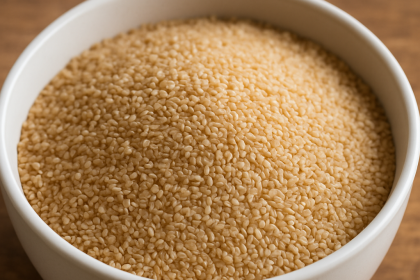Recovery after surgery depends on numerous factors, with nutrition playing a far more critical role than many people realize. While healthcare teams focus extensively on surgical technique and immediate post-operative care, the foods consumed during recovery can either accelerate healing or significantly delay the process.
The human body requires specific nutrients to repair tissues, fight infection, and restore normal function after surgical procedures. Unfortunately, certain common foods can interfere with these natural healing mechanisms, prolonging recovery time and potentially increasing the risk of complications.
Understanding which foods to avoid during the critical healing period empowers patients to make informed dietary choices that support their body’s remarkable ability to recover. The following foods have been identified through medical research as potentially harmful to the surgical recovery process.
Sugar-loaded foods create inflammation roadblocks
Refined sugar represents one of the most significant dietary obstacles to efficient surgical recovery. High sugar intake triggers inflammatory responses throughout the body, directly interfering with the healing process. When blood sugar levels spike repeatedly, the body’s immune system becomes compromised, making it harder to fight potential infections at surgical sites.
Processed sweets, sodas, candy, and baked goods containing refined sugar can slow wound healing by reducing collagen production. Collagen serves as the building block for new tissue formation, making its adequate production essential for proper recovery. Additionally, elevated blood sugar levels can impair circulation, reducing the delivery of oxygen and nutrients to healing tissues.
The inflammatory cascade triggered by excessive sugar consumption can persist for hours after eating, creating a constant state of low-grade inflammation that hinders recovery. This prolonged inflammatory response diverts the body’s resources away from healing and toward managing the metabolic stress caused by sugar overload.
Processed meats delay tissue repair
Highly processed meats like bacon, sausages, deli meats, and hot dogs contain preservatives and additives that can significantly slow surgical recovery. These products typically contain high levels of sodium, nitrates, and other chemical compounds that promote inflammation and interfere with normal healing processes.
The excessive sodium content in processed meats can lead to fluid retention and swelling, which impedes proper circulation to healing tissues. Adequate blood flow is crucial for delivering nutrients and removing waste products from surgical sites, making any interference with circulation particularly problematic during recovery.
Nitrates and other preservatives found in processed meats have been linked to increased oxidative stress in the body. This cellular damage can slow tissue repair and regeneration, extending the time needed for incisions to heal properly. The high fat content and poor protein quality in many processed meats also fail to provide the amino acids necessary for optimal tissue rebuilding.
Fried foods fuel harmful inflammation
Deep-fried foods create multiple barriers to efficient surgical recovery through their high content of damaged fats and inflammatory compounds. The high-temperature cooking process used to create fried foods produces harmful substances called advanced glycation end products, which promote inflammation and interfere with normal cellular function.
The trans fats and oxidized oils commonly found in fried foods can suppress immune system function, making it harder for the body to prevent infections and heal surgical wounds. These damaged fats also interfere with the production of beneficial prostaglandins, which play important roles in controlling inflammation and promoting healing.
Regular consumption of fried foods during recovery can lead to persistent inflammation that diverts energy and resources away from tissue repair. The digestive burden created by these heavy, greasy foods also places additional stress on the body when it should be focusing its energy on healing.
Alcohol impairs healing mechanisms
Alcohol consumption during surgical recovery creates multiple obstacles to proper healing through its effects on immune function, circulation, and nutrient absorption. Even moderate alcohol intake can suppress white blood cell activity, reducing the body’s ability to fight potential infections at surgical sites.
The dehydrating effects of alcohol can impair circulation and reduce the delivery of oxygen and nutrients to healing tissues. Proper hydration is essential for maintaining blood volume and ensuring adequate perfusion of surgical sites, making alcohol’s diuretic effects particularly problematic during recovery.
Alcohol also interferes with sleep quality, disrupting the body’s natural repair processes that occur primarily during deep sleep phases. Growth hormone release, protein synthesis, and cellular repair all peak during quality sleep, making alcohol’s sleep-disrupting effects especially harmful to recovery.
Refined grains lack essential nutrients
White bread, pasta, crackers, and other refined grain products provide calories without delivering the nutrients necessary for optimal surgical recovery. The refining process removes most of the B vitamins, minerals, and fiber that support healing processes, leaving behind primarily simple carbohydrates that can contribute to inflammation.
The rapid blood sugar spikes caused by refined grains can trigger inflammatory responses similar to those caused by added sugars. These repeated inflammatory episodes can slow wound healing and interfere with the immune system’s ability to protect against infections.
The lack of fiber in refined grain products can also contribute to digestive issues and constipation, which are already common problems after surgery due to pain medications and reduced mobility. Poor digestive function can interfere with nutrient absorption, further compromising the body’s ability to heal efficiently.
High-sodium packaged foods cause complications
Convenience foods, canned soups, frozen meals, and other packaged products typically contain excessive amounts of sodium that can interfere with surgical recovery. High sodium intake promotes fluid retention and swelling, which can impede circulation to healing tissues and slow the recovery process.
Excessive sodium consumption can also elevate blood pressure, placing additional stress on the cardiovascular system when the body should be directing its energy toward healing. The preservatives and additives commonly found in packaged foods can also promote inflammation and interfere with normal cellular function.
The poor nutritional quality of most packaged foods means they fail to provide the vitamins, minerals, and antioxidants necessary for optimal tissue repair. Choosing these convenient but nutritionally poor options during recovery can significantly extend healing time and increase the risk of complications.
Caffeinated beverages disrupt recovery sleep
While moderate caffeine intake may not directly harm surgical recovery, excessive consumption of coffee, energy drinks, and caffeinated sodas can interfere with the quality sleep necessary for optimal healing. The body performs most of its repair work during deep sleep phases, making quality rest essential for efficient recovery.
Caffeine’s stimulating effects can persist for six to eight hours after consumption, potentially disrupting sleep patterns when consumed later in the day. Poor sleep quality can slow tissue repair, impair immune function, and extend overall recovery time.
The dehydrating effects of caffeine can also interfere with proper circulation and nutrient delivery to healing tissues. Additionally, many caffeinated beverages contain added sugars or artificial sweeteners that can promote inflammation and further compromise recovery.
Creating a recovery-friendly eating plan
Avoiding foods that slow surgical recovery requires careful planning and preparation, especially during the challenging early days after a procedure. Focus on whole, unprocessed foods that provide the nutrients necessary for tissue repair, immune function, and overall healing.
Lean proteins like fish, chicken, eggs, and legumes provide the amino acids necessary for collagen production and tissue repair. Fresh fruits and vegetables supply antioxidants and vitamins that support immune function and reduce inflammation. Whole grains provide sustained energy without causing dramatic blood sugar spikes.
Staying well-hydrated with water and herbal teas supports circulation and nutrient delivery to healing tissues. Planning meals in advance and having healthy options readily available makes it easier to avoid the processed, inflammatory foods that can sabotage recovery efforts.
The foods consumed during surgical recovery can significantly impact healing time, complication rates, and overall outcomes. By avoiding inflammatory, processed, and nutrient-poor foods while focusing on whole, healing-supportive options, patients can optimize their body’s natural ability to recover efficiently and completely from surgical procedures.
















